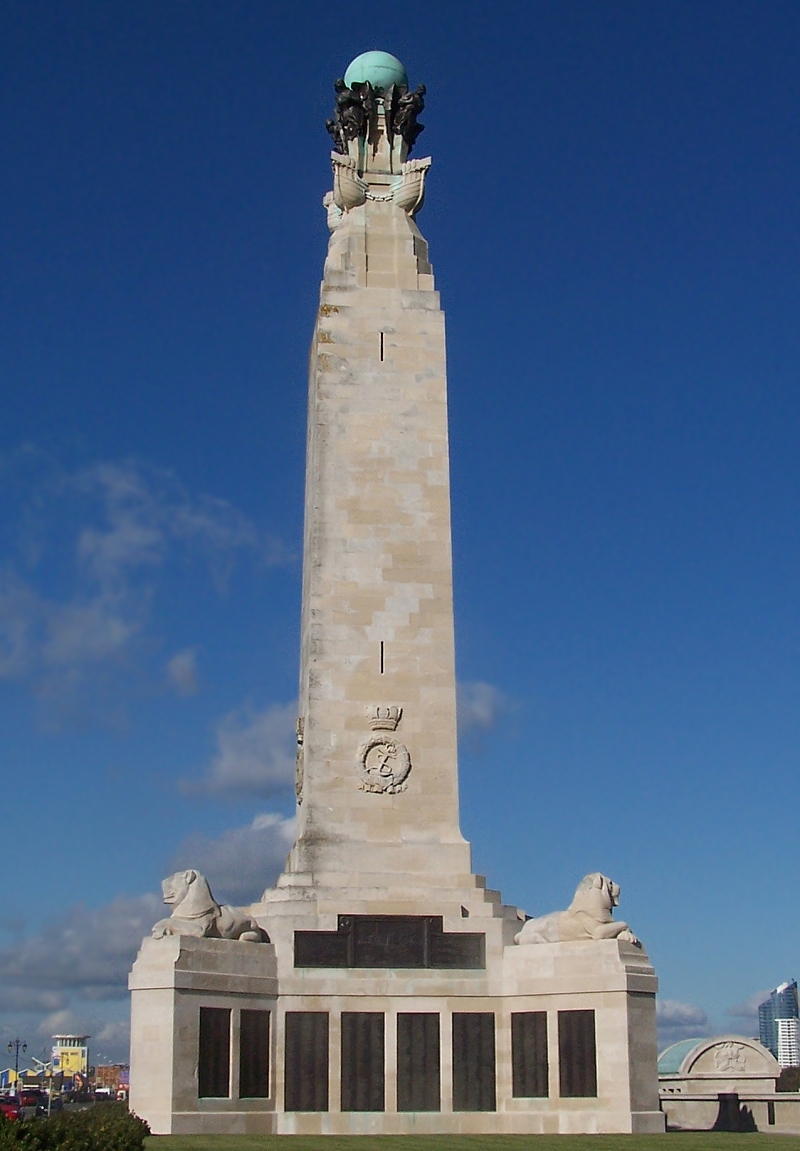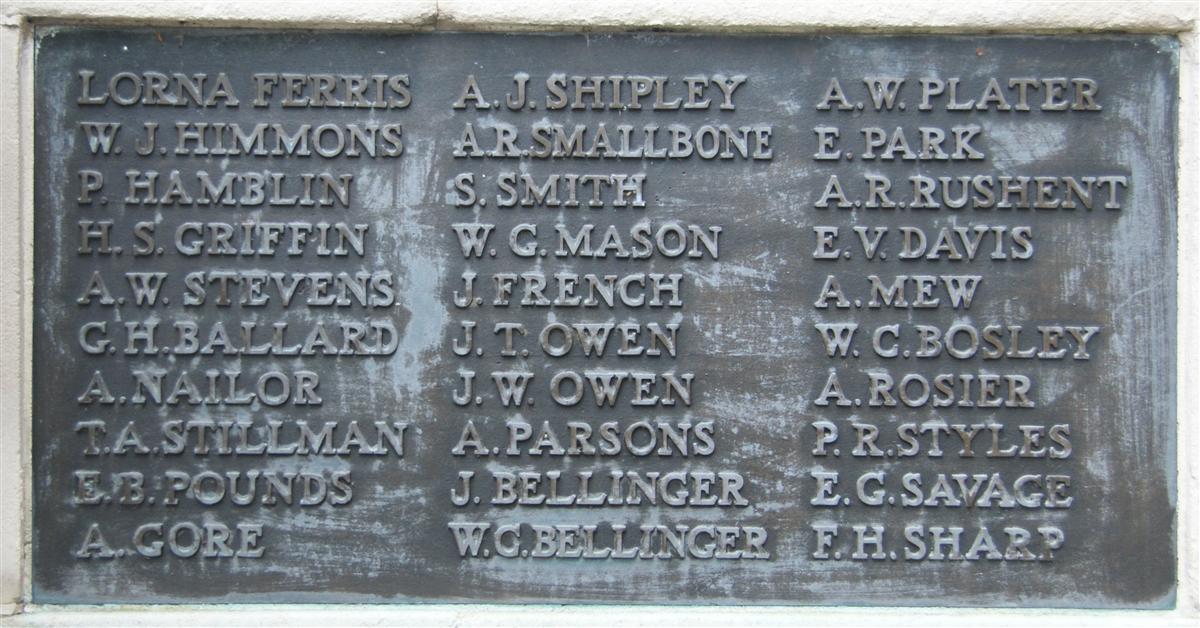Alfred (Robert) Smallbone
Stoker 1st Class K.39531 (PO) Alfred Smallbone, HMS Nugent , Royal Navy
Robert was born on 1 August 1883 in Marlborough, Wiltshire. Despite his name being registered as Alfred Smallbone, with no middle name, he was soon known to all as Robert, appearing under this name in census returns from 1891, 1901 and 1911. His parents, John Edward Smallbone or Smallbones (his marriage was registered under both surnames) and Martha née Platt lived in Burbage, a few miles outside Marlborough; John worked as a cooper for a local brewery.
At the time of the 1901 census John and Martha were living apart, John with relatives in Kent and Martha in Swindon with the children. It is not known if this was a temporary arrangement caused by John having to move to find work or a more permanent separation. Robert (18) and his younger brother, John (16), were both were working in a boot shop, Robert as a porter and John as an ‘assistant’. With Martha also at work in a local factory and only one child (eight year old Martha junior) in the household they would not have been too impoverished by the loss of the family’s main breadwinner.
Martha died in 1910. Perhaps it was this that prompted Robert’s move to Newbury or perhaps he had already made the move to find employment? He lodged at the Popular Cafe in Bartholomew Street, where a fellow boarder was Albert Ray, a professional roller skater. In 1913 Robert returned to Swindon to marry Elizabeth Strange, probably in the church at Lydiard Tregoze a short distance west of the town. Their children Ivy (born 1914), Cissy (1915) and Alma (1917) were all born in Newbury, where the family settled at 1 Industrial Cottages, Russell Road (now 86 Russell Road).
When conscription was introduced in 1916 men were put into numbered ‘groups’ according to their age and marital status. As a married man born in 1883 Robert would have been in Group 38 (out of 46). The higher the number, the longer it was until the call-up came. However, such was the demand for men at the front that Robert’s group became eligible for the summons on 31 May 1916. This did not automatically result in a call-up; there could be delays, especially if a preliminary medical suggested the potential recruit was not capable of full front-line service. Recruits were allowed to express a preference for the branch of the services that they would like to serve in (a preference that was very often ignored); the Royal Navy was given priority over men asking to serve with them and thus were able to cherry-pick the men they took. Those not wishing to serve could appeal on various grounds, but few were successful in doing any more than delaying the date they donned a uniform.
Robert enlisted into the Royal Navy on 17 January 1917 when he was described as being 5ft 6in tall with black hair, brown eyes and a dark complexion. His service record gives his civilian occupation as ‘boat salesman’ as opposed to ‘boot salesman’ – one wonders if the Navy was attracted to Robert as a recruit as the result of mis-reading his handwriting?
Following training in Portsmouth Robert was posted to HMS Nugent on 11 May 1917 as a Stoker (2nd Class) – his war service was to be spent shovelling coal.

The Portsmouth Naval Memorial. |
HMS Nugent was an M (Moon) Class Destroyer launched on 23 January 1917, one of 103 destroyers built to this design and operated by the Navy during the war. Destroyers were fast easily manoeuvred ships originally designed to protect larger warships from the threat posed by Torpedo Boats (the term destroyer is a contraction of torpedo boat destroyer), but they proved useful in many roles. HMS Nugent was one of the destroyers attached to the Dover Flotilla, the ‘Dover Patrol’. Her roles would have included anti-submarine patrols and convoy escort duties. On 23 April 1918, a matter of days after she became operational, she was part of a destroyer screen covering an operation against the Belgian port of Ostend. The aim was to sink two obsolete cruisers in the mouth of the canal at Ostend, blocking access to the inland port of Bruges which was being used by the Germans as a submarine base. This raid - a secondary element to a larger raid on Zeebrugge - was under resourced and met stiff opposition from German marines defending the port; it was a total failure. A second attempt three weeks later was a partial success when one cruiser was sunk in the canal, but failed to totally block it.
On 1 November 1918 Robert was promoted to Stoker Class I which would result in a small increase in pay but probably not a lot of change in his work. Ten days later the war against Germany ended when the armistice came into effect and the guns were silent for the first time in over four years. Servicemen like Robert Smallbone, who had been enlisted to serve for the duration of hostilities could begin to look forward to going home. However, this could not happen overnight. It must have been some time before the Navy, for example, would be convinced that every German submarine had heard of the armistice and was prepared to stop the fighting. The Dover Patrol remained active, patrolling key shipping lanes in the North Sea and English Channel. On 23 November 1918 the Nugent

Robert's name on Newbury War Memorial (top right) |
was at sea, the weather appears to have been relatively mild for late November, some drizzle, but nothing out of the ordinary for a ship at sea. Despite this, Robert Smallbone was lost overboard; his body was never recovered. A court of enquiry into his death determined that it was an accident, that there was nothing to suggest that he took his own life, and that no one was to blame.
As his body was not recovered he is remembered on panel 30 of the Portsmouth Naval Memorial
Locally he is remembered on panel 1 of the Newbury Town War Memorial
Robert's widow Elizabeth and their three children stayed in Newbury after the war. Elizabeth lived in the same house, 1 Industrial Cottages / 86 Russell Road until her death.

Find a memorial :
| Died this day: | |
| 02 March 1943 | |
| K F Bartholomew | |
| Thatcham |

Like this site? Show your appreciation through a donation to a great charity.